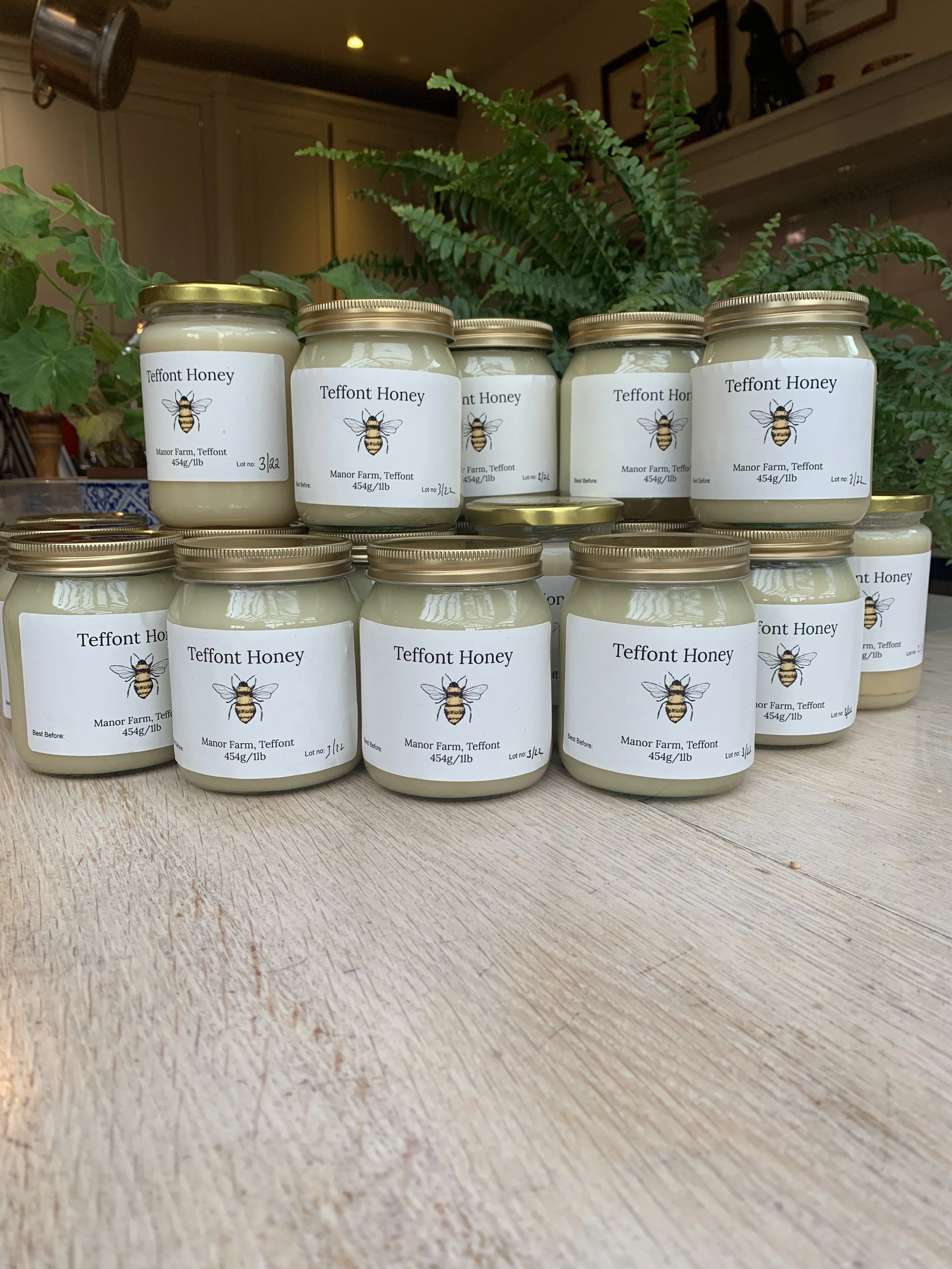Manor Farm honey
Some years ago David started keeping bees at Manor Farm. Now he has a number of hives, looks after the bees and collects the honey to provide to friends and neighbours.
The bees at Manor Farm are all local indigenous honey bees. The honey is absolutely organic; literally nothing is added to it and nothing is taken out.
Teffont honey is produced in three forms. The first is ‘runny honey’ which is the way that comes from the combs: sweet, runny and aromatic, ideal for cooking and for dribbling on bread. If runny honey is left in a cool place for long enough it turns into ‘set honey’, sometimes called white honey or hard honey. Some people prefer that form. Set honey can be turned back into runny honey simply by heating it gently, although care must be taken to avoid over-heating the honey which will destroy some of the delicate enzymes and unique characteristics and flavour. Finally, David also produces semi-set honey which is honey in a spreadable form, like butter. But make no mistake: it’s all the same honey with absolutely nothing added and nothing taken out.
In the early part of the year the bees are busy collecting pollen and nectar from the early-flowering blooms such as dandelion, spring flowers and local crops. Later on they move on to fruit blossom, garden flowers, blackberry and lime. And towards the end of the year their last harvest is usually the ivy that fills the hedgerows around here. Then, when they have gathered in the last of the seasons’ harvest the bees settle down inside their hives for the long winter and patiently await the next spring.
Here we tend to take two harvests, an early one in May and a later one in August. Exactly when and how much we harvest depends very much on the weather and how the bees have done. We always leave plenty of honey for the bees to consume in the long winter months when they’ve nothing else to eat.
Depending on the weather and the stage that the bees are at in their annual cycle David is very happy to show guests his hives and give them an insight into the incredible life of the honey bee.
David and Joss sell the honey through the Village Hall and a local shop. They can also provide honey by mail-order.

